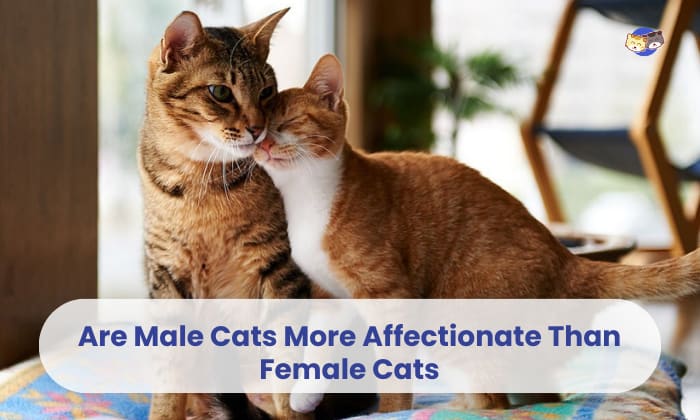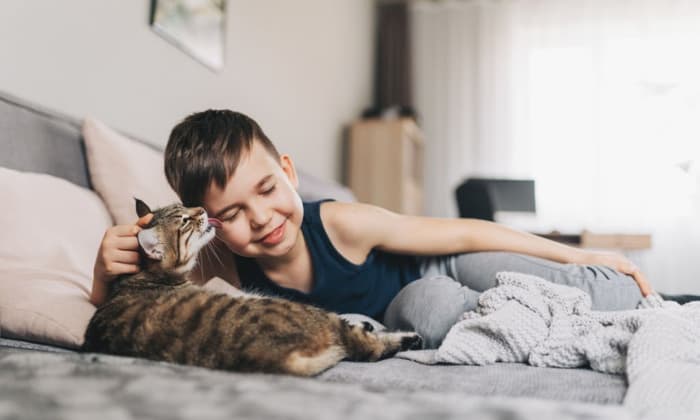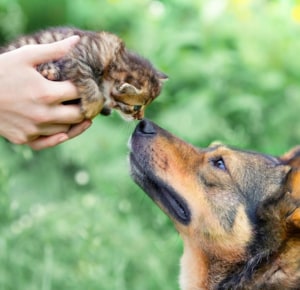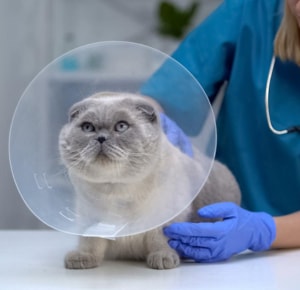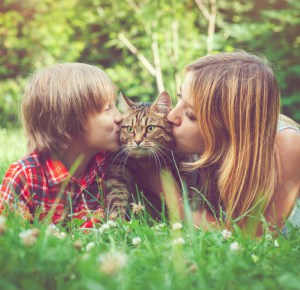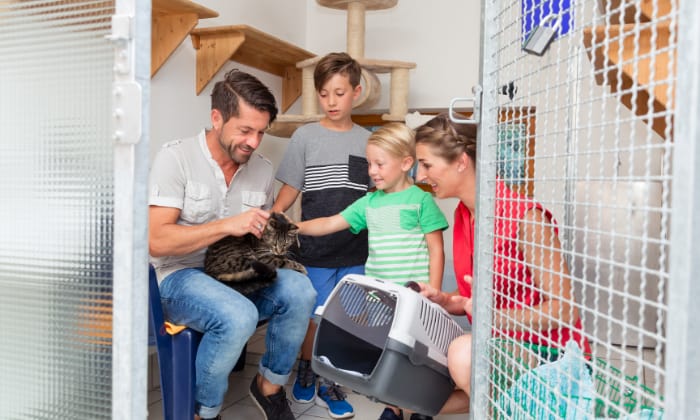In the feline domain, various opinions and stereotypes shape arguments about their behavior. A frequent question involves the affection of male cats vs female cats. Are male cats more affectionate than female cats?
No specified rule provides an objective explanation for this. Affection perception is subjective, varying individually. For upcoming cat adopters, spending time with shelter cats is recommended to measure personalities, regardless of gender.
Table of Contents
The Truth About Male Cat’s Affection
Just like us people, each cat is special in its preferences and conducts. There’s a typical hypothesis that male cats are inherently more affectionate than female cats.
On the other hand, this is not a hard-and-fast regulation. While some male cats can be extremely cuddly and vigilant, others might lean towards being cold or independent.
Feline behavior is influenced by a combination of genetic predisposition, early socialization, and individual personality traits. It is necessary to suppose that the concept of male cats being more loving might stem from historical stereotypes and statements that don’t apply universally.
Research has revealed that the relationship between a cat’s gender and level of affection is not as straightforward as it seems. Aspects such as the cat’s upbringing, adventures during kittenhood, and relations with humans and other animals play noteworthy roles in shaping its behavior.
Kittens that are regularly handled and socialized by humans usually develop more affectionate dispositions, regardless of gender.
What Factors Affect the Affectionateness of a Cat?
1. Genetics and personality traits:
Just like humans, cats have distinguishing personalities. Some male cats are friendlier than female cats due to hereditary factors, but the duplicate can be stated for female cats as well.
It’s critical to recognize that the warmth and friendship a cat offers can depend on its intrinsic nature.
2. Socialization:
Cats that are properly socialized during their early weeks are more likely to display friendly and affectionate behavior. This vital span, usually between two and seven weeks of age, gives light to a cat’s lifelong relations with humans and other animals. Socialized male and female cats can both mold strong bonds with their owners.
3. Neutering and spaying:
Neutering and spaying have the possibility to play a part in a cat’s demeanor.
Male cat behavior tends to be more aggressive before neutering. However, after neutering, it shows raised affection due to hormonal transformations that diminish aggression and territorial behavior.
Similarly, spaying female cats can avert certain behavioral changes associated with heat cycles. However, this doesn’t necessarily make one gender more affectionate than the other.
4. Environmental factors:
The environment in which a cat is raised can greatly influence its behavior. Cats that are nourished with love, attention, and optimistic experiences are more likely to depict affection, regardless of their gender. On the other hand, cats with damaging experiences might exhibit behaviors that are misunderstood as aloofness.
What Gender of Cat Should I Get?
When deciding between a female vs male cat, it’s crucial to concentrate on character traits instead of gender stereotypes.
Spend time interacting with various kittens or cats before constructing a judgment that aligns with your preferences and lifestyle.
- Evaluate their reactions to affection, monitoring whether they enjoy cuddling, purring, or seeking out physical touch.
- Pay attention to their playfulness, remarking if they engage in energetic games, chase toys, or exhibit a more relaxed behavior.
- Additionally, mark their social interactions with both humans and other animals, gauging their comfort level and readiness to engage in companionship.
Remember, a cat’s personality is not solely determined by gender; it’s shaped by a complex interplay of genetics, socialization, and past experiences.
Some female cats might display an outgoing and affectionate nature, while others might be reserved but exceptionally loyal once they build trust.
Similarly, male cats could vary from being attention-seeking cuddlers to autonomous and curious adventurers.
Keep in mind that gender stereotypes encircling cats are just that: stereotypes. Cats, like humans, exhibit a diverse range of personalities that go beyond generalized presumptions.
This approach helps you find a feline counterpart that aligns with your lifestyle and ensures that you’re adoring and admiring each cat as the individual they are, regardless of whether they are male or female.
So, when selecting a cat, look past stereotypes and focus on understanding the unique disposition of your feline friend. You can even try making male and female cats live together to add more members to your family!
Conclusion
Are male cats more affectionate than female cats? In the mesmerizing world of feline demeanor, gender is just one element among various ones that impact a cat’s affectionate qualities.
While some male kittens might be more affectionate than certain females, no universal edict dictates that one gender is more loving than the other.
Hereditary predisposition, early socialization, and respective personality traits play noteworthy roles in a cat’s behavior; there are always pros and cons.

I am Amy Sawy, a Doctor of Veterinary Medicine (DVM) graduate from the University of Kansas. y husband, Dr. Plummer, and I own a veterinary clinic in Phillipsburg, Kansas. In addition to my professional background, I am a devoted pet owner myself, with a household that includes dogs, rodents, and most notably, cats – a total of five felines in my home.
In 2020, I joined an organization as a professional writer, leveraging my experience and collaborating with my team to deliver the most valuable information for your cat’s care.


